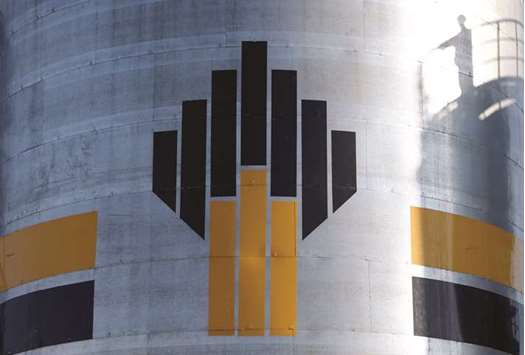CEFC China Energy, which has grown from a niche oil trader to a sprawling energy conglomerate, is in talks to acquire a stake in Russian state oil giant Rosneft, three people with direct knowledge of the discussions said.
The people said senior executives at both companies were in preliminary discussions, though there have already been two meetings between CEFC chairman Ye Jianmin and Rosneft CEO Igor Sechin since July.
It was not immediately clear how much CEFC would invest in Rosneft, nor if the Chinese group would buy new shares or existing stock in the parent company.
One person familiar with Rosneft said it would be open to selling CEFC a stake in its retail business, which includes almost 3,000 filling stations, around 150 oil storage complexes and over 1,000 gasoline tankers.
Russia has overtaken Saudi Arabia as China’s biggest oil supplier, and Rosneft is by far Russia’s biggest and most influential oil company, with strong ties to the Kremlin.
Having access to Rosneft’s reserves and refining capacity would boost CEFC’s ambitions to become a major international energy merchant and rival to traders like Glencore.
CEFC, which has a rare contract to store part of China’s strategic oil reserve, has expanded aggressively, hiring officials from state-owned energy firms and acquiring a series of overseas assets since 2015.
The Russian government, through holding company Rosneftegaz, owns 50% of Rosneft, after it sold a 19.5% stake to Glencore and Qatar Investment Authority (QIA) for more than €10bn ($11.8bn) in December.
It would need to issue a special government decree if it were to lower its holding in Rosneft below 50%.
BP owns 19.75% of Rosneft.
Asked to comment on the stake acquisition talks, a CEFC spokesman said the two firms signed a cooperation agreement on August 2, when Sechin visited CEFC’s headquarters in Shanghai. That deal was a broad cooperation on everything from oil and gas exploration to financial services, according to CEFC’s website.
The spokesman did not comment on whether those discussions involved a stake purchase.
A Rosneft spokesman said the company saw China as a strategic partner and was cooperating with a wide range of Chinese companies, including CEFC.
“We consider the Chinese market as the most promising and actively developing. The company will increase its cooperation with Chinese partners in all business areas and make public statements accordingly as joint projects are developing,” the company said in an e-mail.
“Rosneft does not hold its shares and, therefore, does not sell its shares.”
Reuters could not immediately reach Rosneftegaz for comment.
CEFC would be the first privately held Chinese firm to invest in a major oil giant.
Usually, Beijing would tap China’s three big state-owned oil players for strategic investments.
With ambitions to become China’s next oil giant, CEFC paid nearly $900mn for a 4% stake in an onshore field majority-owned by Abu Dhabi National Oil Co (ADNOC), and has agreed to buy a 51% stake in KMGI, a unit of Kazakh state firm KazMunayGaz, and a 20% stake in New York-based financial services firm Cowen Group Inc. The United States and the European Union have imposed sanctions on Russia over its annexation of the Crimea region from Ukraine: Rosneft, whose CEO is seen as a close ally of Russian President Vladimir Putin, is the only company sanctioned by both.
The sanctions will be a key concern for CEFC before any further serious decision, and could pose financing challenges, said one senior Chinese source familiar with the discussions.
“The company is now engaging lawyers to evaluate thoroughly the legal hurdles sanctions may bring about,” the person said, adding it was too soon to discuss valuations.
CEFC and Rosneft have over the past 3-4 years discussed various cooperation opportunities from upstream investment in Russian oilfields to oil trade, but only recently did Rosneft initiate the idea of a stake investment, said another senior Chinese source briefed on the matter.
CEFC has assigned a task force of around 40 people to work on the investment, a third person said.
The two companies could announce a deal as soon as early next month, when senior Russian officials are expected to visit Beijing, that person added.

The shadow of a worker is seen next to a logo of Rosneft oil company at the central processing facility of the Rosneft-owned Priobskoye oil field outside the West Siberian city of Nefteyugansk, Russia. Russia has overtaken Saudi Arabia as China’s biggest oil supplier, and Rosneft is by far Russia’s biggest and most influential oil company, with strong ties to the Kremlin.
